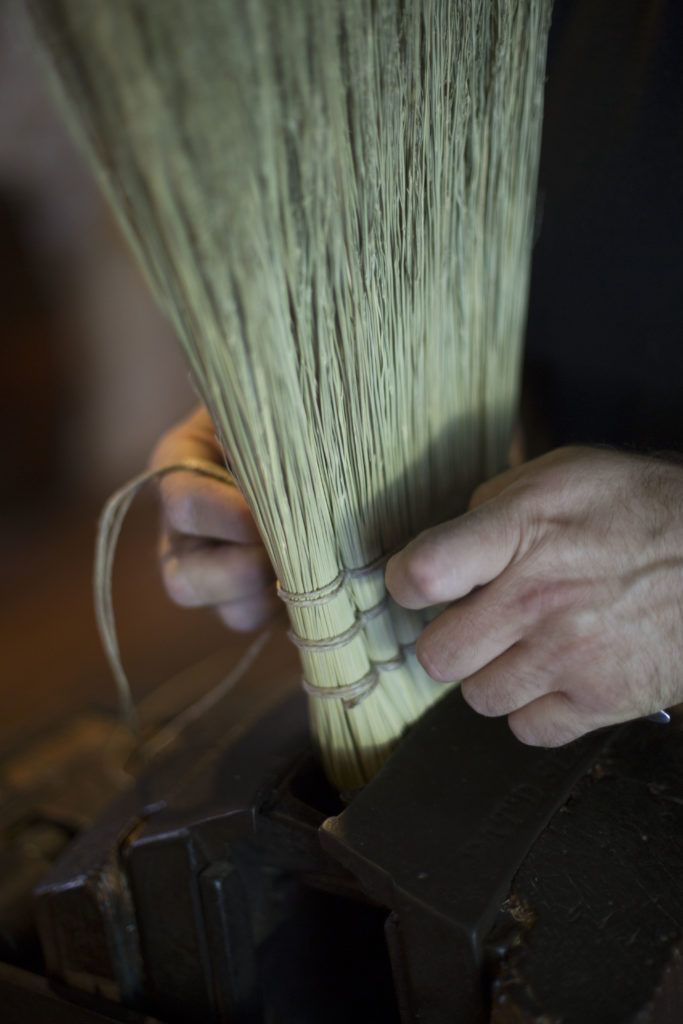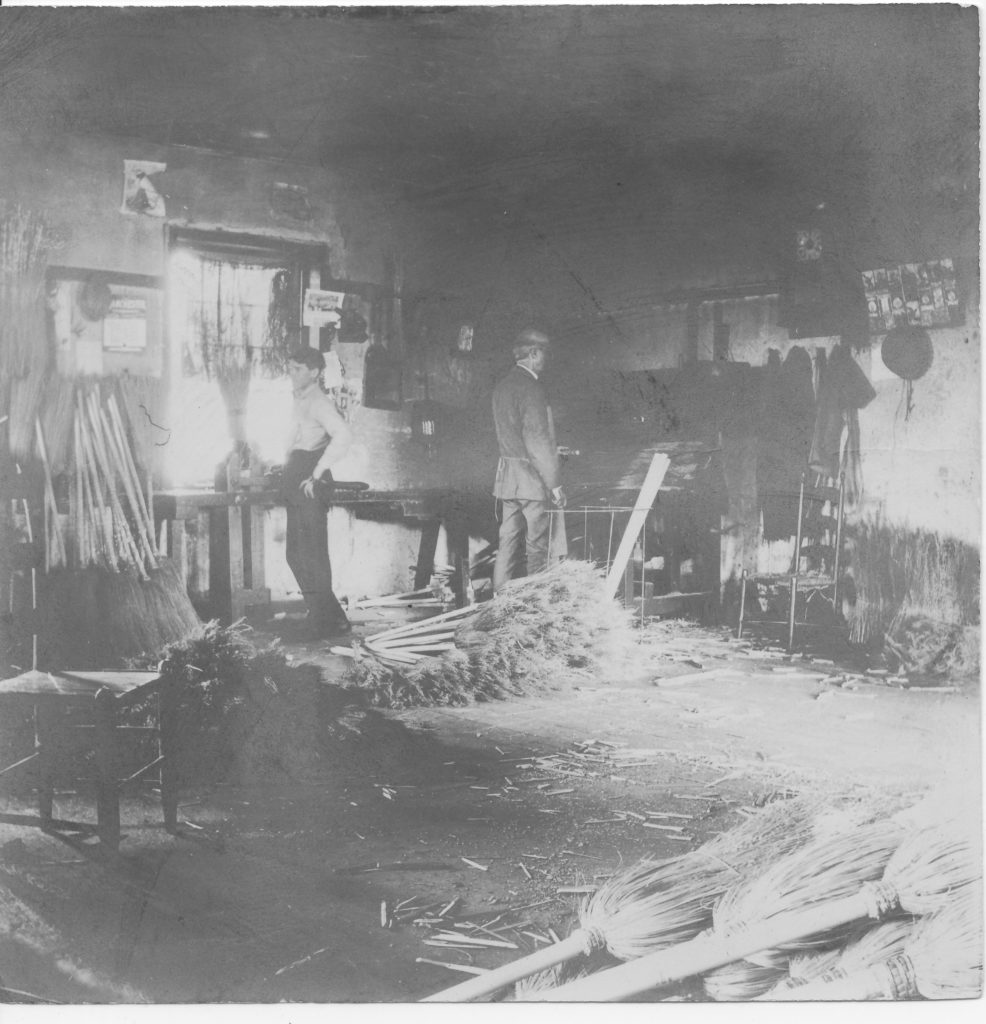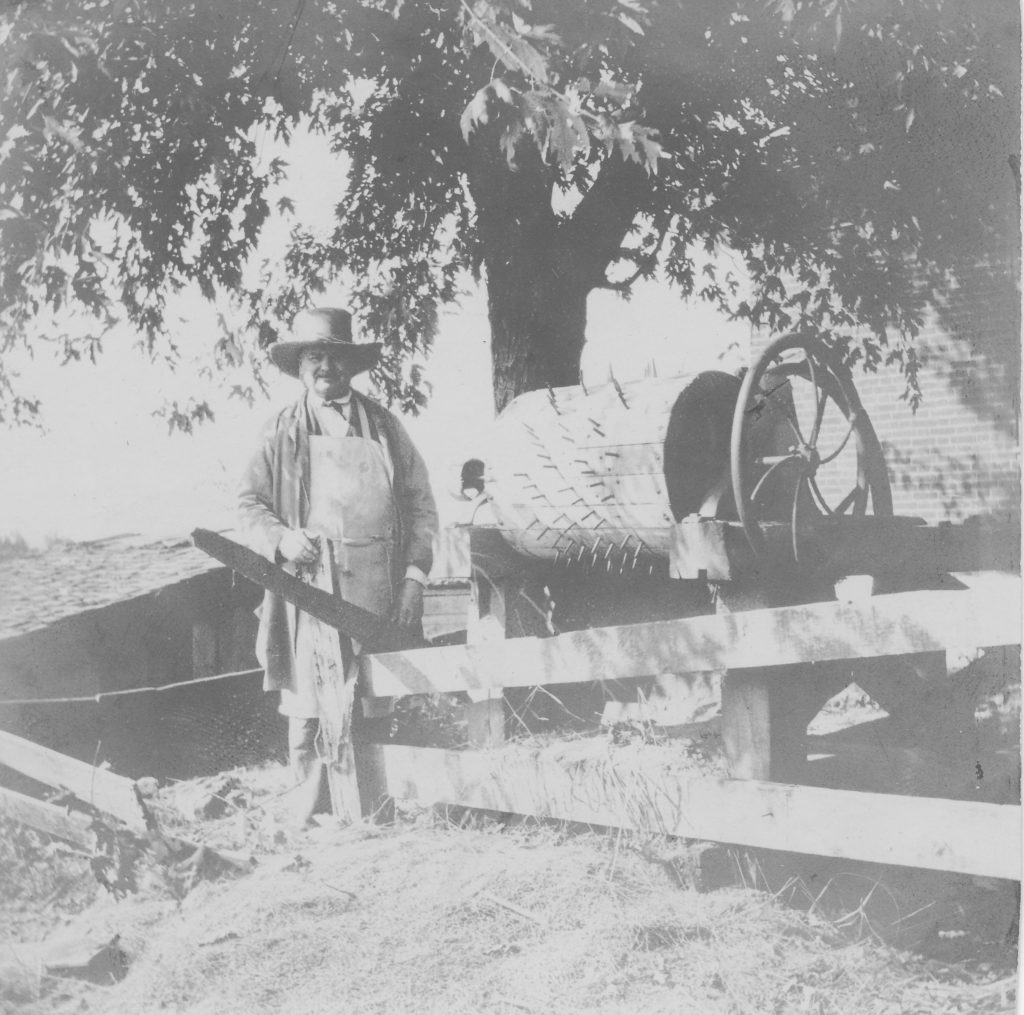Jacob Glover, PhD., Program Manager
“These people are rich and getting richer. Contrast a Shaker broom with a penitentiary contract-labor broom. One sweeps and the other raises dust…” – “Shaker Socialism Good,” Salt Lake (UT) Herald, June 21, 1896

Over the years, the Shakers and brooms have become somewhat synonymous. In many ways this makes sense: broom making was widespread in Shakerdom, and nearly all Shaker communities made brooms for use within their villages and to sell to the outside world. Just how many were made? At Pleasant Hill, for instance, Brother Francis Monfort reportedly made 25,000 broom handles in 1859 alone!
Beyond the common association of brooms with the Shakers, however, what’s the real story about the importance of brooms to the Shakers and their lifestyle? It might surprise you…
Before we go any further, we should get something out of the way. Despite the enduring legacy of this particular myth, the Shakers did not invent the flat broom. They did, however, create a flat broom press that greatly facilitated the process of making these brooms.
Begun at Watervliet, New York, in 1798, the Shaker broom industry quickly became one of the most important economic lifelines for Shaker communities across America. By the 1840s, Pleasant Hill had planted nearly 60 acres of broomcorn on their property, and they were turning out thousands of brooms each year for sale to towns and cities near and far. For most of the rest of the 19th century, Pleasant Hill found a ready market for their brooms that continued to sell for between $2 and $3 per dozen.

Like many other Shaker-made products, there also developed a fascination with the superior quality of Shaker brooms. The quote that opens this blog post is only one of many testimonials to Shaker quality. Consider this clipping from a New York newspaper in 1842: “The Shakers for a long time almost monopolized the raising of the [broom] corn and the manufacture of brooms which…were always of a superior quality.”
An association with the Shakers, even a lapsed one, could also carry weight with consumers. One Pleasant Hill Shaker who left the community opened a broom store in Richmond, Kentucky, and resorted to a unique marketing approach: “The Shakers do certainly know how to make brooms. Mr. Spencer, being an ex-Shaker, will make you an ‘ex-Shaker broom.’ When you buy a broom, be certain it is an ‘ex-Shaker’ and then you’ll know you have got the best.”

Although indelibly linked to Shaker economics, brooms can also be seen as a symbolic of several important Shaker ideals. After all, cleanliness was far from the demands of rogue, overzealous Shaker leaders—it was a spiritual and moral imperative that came from none other than Mother Ann Lee. “Good spirits will not live where there is dirt,” she is supposed to have famously quipped!
As it often turns out with history, what you think you know is only the beginning!
Want to learn even more about the Shaker broom industry? Come out and explore our Swept Away exhibit!
Want to go a bit more in-depth? Every fall, Shaker Village offers broom making workshops where you make your own hand-tied brooms and take part in this traditional craft! Check our event calendar to learn about these exciting opportunities!